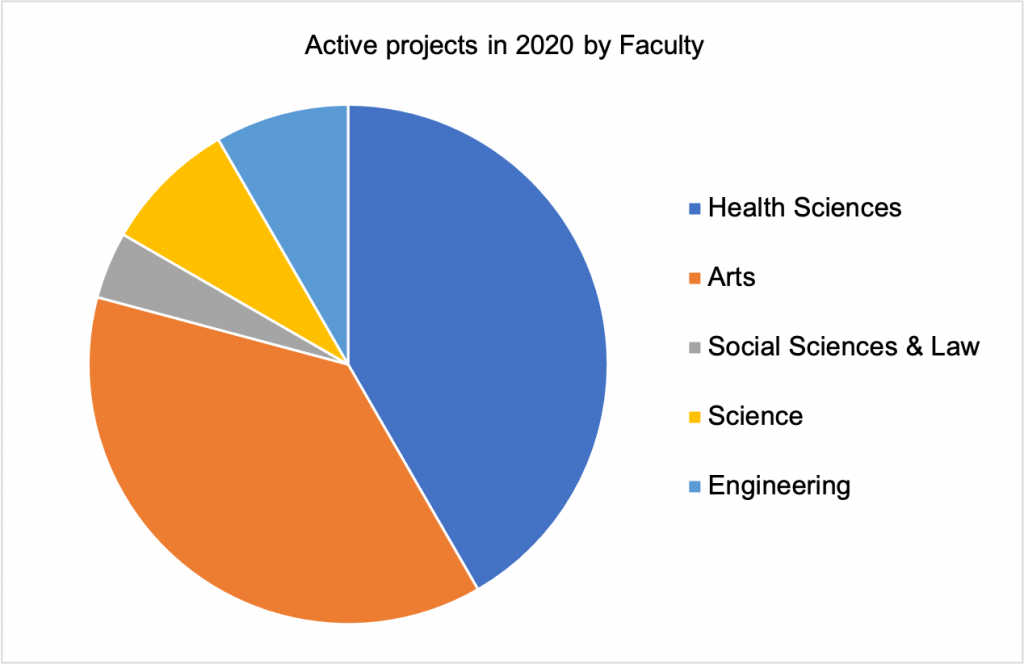Research IT at the University of Bristol covers a wide range of subject areas and a breadth of scope and technology. This post is a general introduction. Future posts will cover our projects, aspects of our work, and areas around Research IT in more detail. We are hoping to have some guest posts from those who have used our services.
I took over management of the team in May 2020 and have been truly amazed at the variety of projects they are working on. For such a small team (3 developers, a sys admin and a relationship manager) they manage to work on quite a few projects. We worked on 24 different projects in 2020 and had conversations with over 80 academics about their research and how we could help.
I like a chart so have done some analysis on the university faculties we work with. As you can see, we have an almost equal spread of projects shared between Health Sciences and the Arts. I don’t know all the reasons for this distribution, but some of it may be down to word of mouth and ongoing relationships with some researchers. We are however able to, and very happy to work with researchers in any discipline.

The topics covered in these projects include cataloguing and visualisation of data from historical manuscripts, producing tools to help with earthquake and drought management, and creating platforms for clinical trials of online mental health treatments and for sharing biological data sets.
The size of projects can vary from just a few days of consultancy, through to significant developments of many months and ongoing work for the years of the research project.
We maintain a pipeline of work and are always happy to hear about your research project to see if we can help. We are currently really interested in working on projects with elements of machine learning, AI, visualisation and virtual reality.
Further details on some of our projects can be found on our website https://www.bristol.ac.uk/research-it/examples-of-work/
